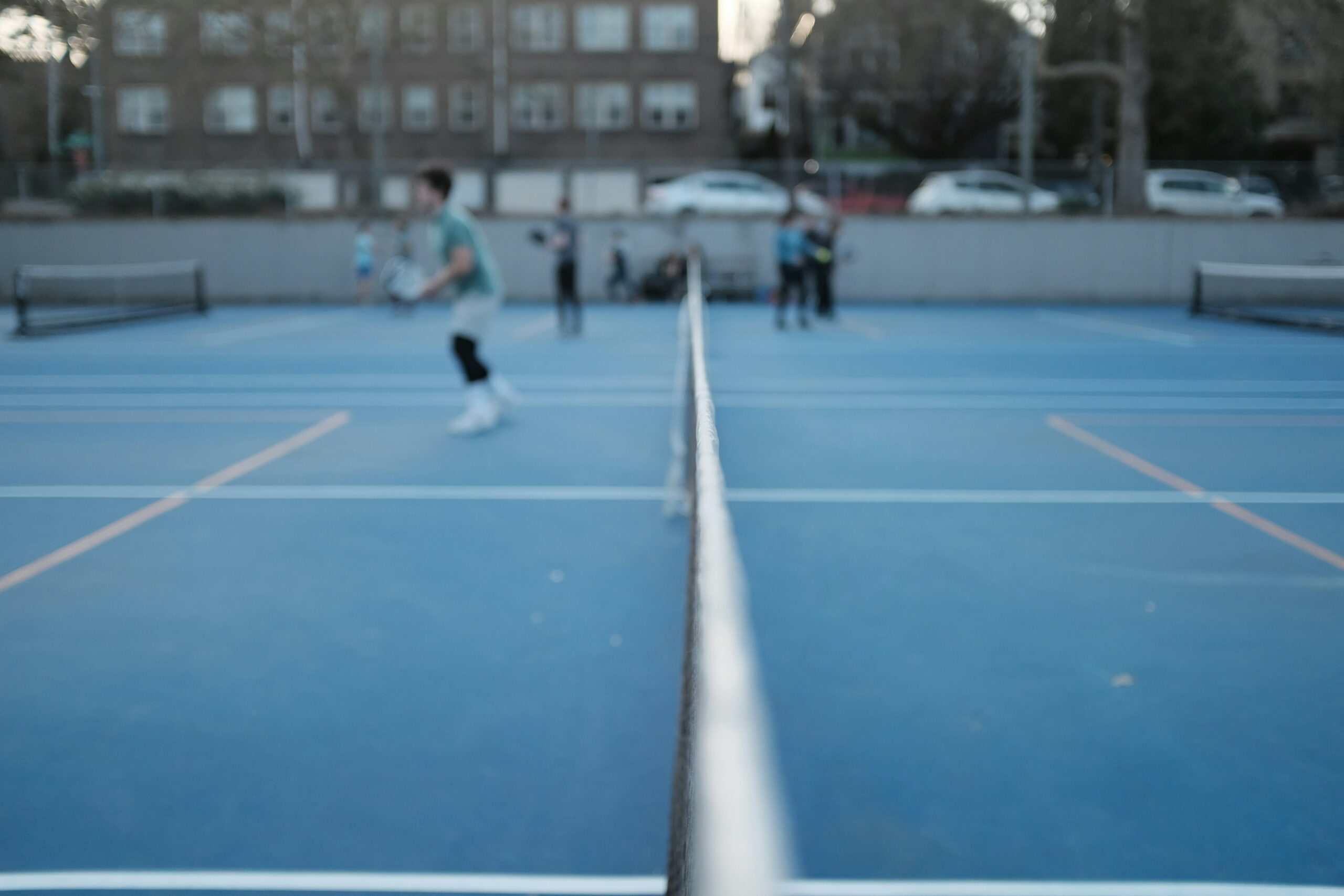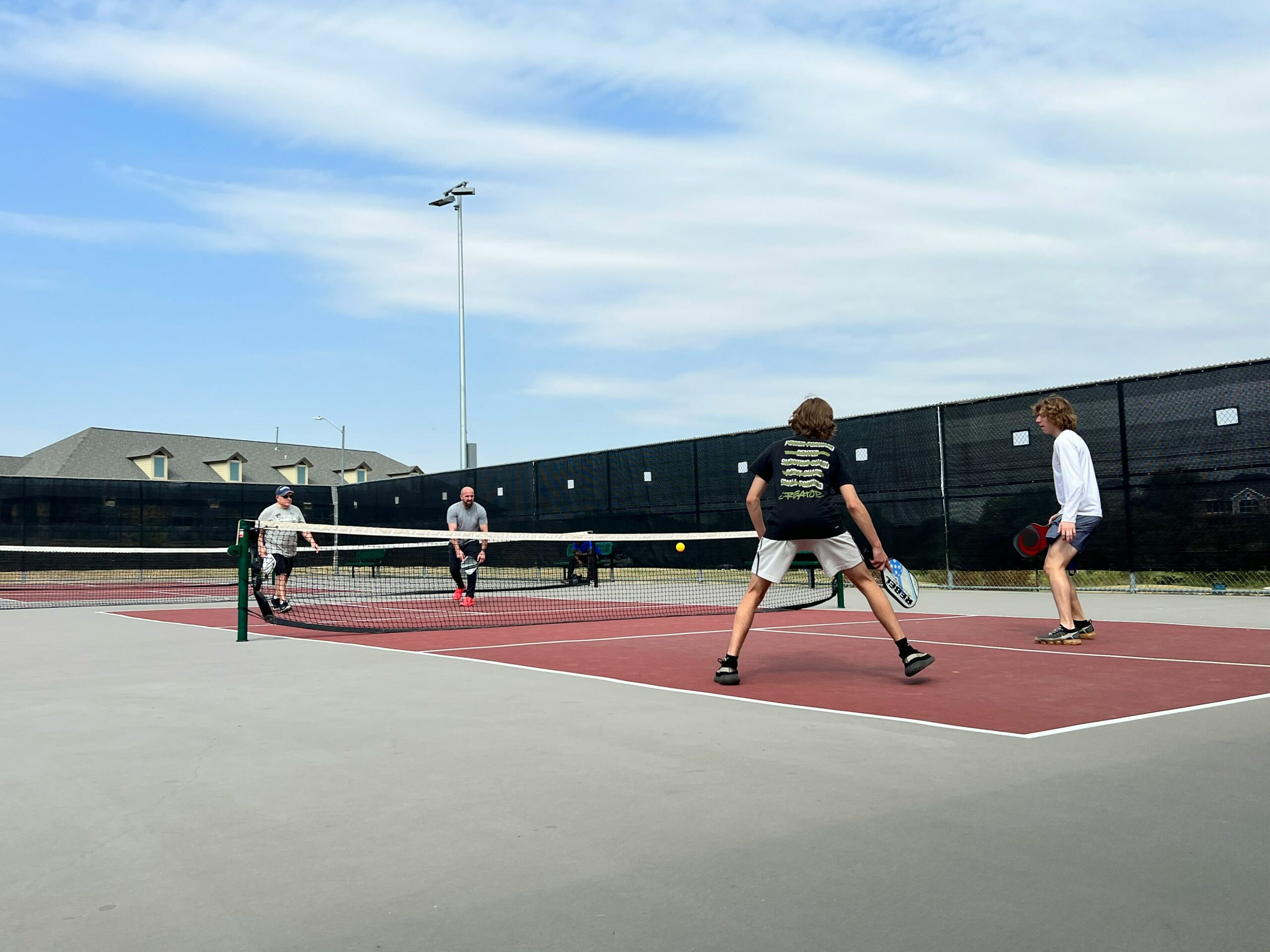Pickleball, a sport that has skyrocketed in popularity in recent years, is more than just a fun and social activity—it’s also a fantastic way to improve your health. Combining elements of tennis, badminton, and ping-pong, pickleball offers a low-impact workout that’s suitable for people of all ages and fitness levels. Whether you’re a seasoned athlete or new to physical activity, playing pickleball can contribute significantly to your overall well-being. Let’s explore the numerous health benefits that make pickleball such a valuable addition to your fitness routine.
1. Cardiovascular Health
One of the most significant benefits of playing pickleball is its positive impact on cardiovascular health. The game requires constant movement, whether you’re running to return a serve or lunging to make a shot. This sustained activity elevates your heart rate, promoting cardiovascular endurance and strengthening your heart muscles.
How it Helps:
- Increases Heart Rate: The aerobic nature of pickleball helps maintain a healthy heart by improving circulation and reducing the risk of cardiovascular diseases like hypertension, stroke, and heart attack.
- Enhances Stamina: Regular play builds endurance, making it easier to engage in other physical activities without getting winded.
2. Weight Management and Fat Loss
Pickleball is an excellent way to burn calories and manage your weight. A typical game involves a mix of steady-state exercise and high-intensity bursts, which can help you shed excess pounds and maintain a healthy body weight.
How it Helps:
- Burns Calories: Depending on the intensity and duration of your game, you can burn anywhere from 300 to 600 calories per hour. This makes pickleball an effective tool for weight loss and fat burning.
- Boosts Metabolism: The combination of aerobic and anaerobic activity helps boost your metabolism, allowing your body to burn more calories even at rest.
3. Improved Strength and Muscle Tone
Although pickleball is less strenuous than sports like tennis, it still provides a good workout for your muscles. The sport engages multiple muscle groups, including the legs, arms, core, and back, helping to improve overall muscle tone and strength.
How it Helps:
- Leg Strength: Running, pivoting, and lunging to hit the ball strengthens the muscles in your legs, particularly the quadriceps, hamstrings, and calves.
- Arm and Shoulder Strength: Repeated swinging of the paddle works the muscles in your arms, shoulders, and chest, helping to improve upper body strength.
- Core Stability: The twisting and turning involved in reaching for the ball engage your core muscles, which improves stability and balance.
4. Joint Health and Flexibility
Pickleball is a low-impact sport, meaning it puts less stress on your joints compared to high-impact activities like running or basketball. This makes it an excellent option for people with joint issues or those looking to maintain joint health as they age.
How it Helps:
- Improves Flexibility: The dynamic movements in pickleball, such as reaching, bending, and stretching, help to improve flexibility, particularly in the hips, legs, and shoulders.
- Reduces Joint Pain: The low-impact nature of the sport helps to keep your joints lubricated and reduces the risk of joint pain or injury, making it suitable for those with arthritis or other joint conditions.
5. Mental Health and Cognitive Function
In addition to its physical benefits, pickleball also offers significant mental health advantages. The game requires quick thinking, strategic planning, and coordination, all of which contribute to improved cognitive function and mental well-being.
How it Helps:
- Reduces Stress: Like many physical activities, pickleball triggers the release of endorphins, the body’s natural mood lifters. This helps reduce stress, anxiety, and depression.
- Enhances Cognitive Function: The mental engagement required to anticipate your opponent’s moves, react quickly, and strategize on the court helps to improve focus, memory, and cognitive function.
- Boosts Social Interaction: Pickleball is a social sport, often played in doubles. The interaction with others during games promotes a sense of community and belonging, which is essential for mental health.
6. Improved Coordination and Balance
Pickleball requires a combination of hand-eye coordination, quick reflexes, and balance. These skills are not only essential for performing well in the game but also play a crucial role in daily activities.
How it Helps:
- Enhances Hand-Eye Coordination: The fast-paced nature of pickleball requires precise hand-eye coordination to hit the ball accurately. This skill translates to better coordination in other areas of life.
- Improves Balance: The need to move quickly and maintain control on the court helps improve balance and agility, reducing the risk of falls and injuries, especially as you age.
7. Bone Health
Weight-bearing activities are important for maintaining bone density, which can help prevent osteoporosis and fractures. Although pickleball is low-impact, it still provides enough resistance to benefit your bones.
How it Helps:
- Increases Bone Density: The impact from running and jumping, combined with the strength required to swing the paddle, helps to maintain and even improve bone density.
- Prevents Osteoporosis: Regular participation in pickleball can help to prevent bone loss and reduce the risk of osteoporosis, especially in older adults.
8. Enhanced Agility and Reflexes
The quick pace of pickleball improves your agility and reflexes. As you become more skilled, you’ll notice that your ability to react to the ball and move around the court becomes faster and more efficient.
How it Helps:
- Improves Reflexes: The need to react quickly to your opponent’s shots enhances your reflexes, which can also benefit you in everyday situations.
- Boosts Agility: Regular play improves your ability to change direction quickly, enhancing your overall agility and quickness.
9. Longevity and Quality of Life
Playing pickleball regularly can contribute to a longer, healthier life. The combination of physical activity, mental engagement, and social interaction helps to improve overall quality of life.
How it Helps:
- Promotes Longevity: Engaging in regular physical activity like pickleball can help to extend your lifespan by reducing the risk of chronic diseases and improving heart health.
- Improves Quality of Life: The physical, mental, and social benefits of pickleball contribute to a better quality of life, allowing you to stay active and engaged as you age.
Conclusion
Pickleball is more than just a sport—it’s a holistic workout that benefits your body, mind, and spirit. Whether you’re looking to improve your cardiovascular health, manage your weight, or simply enjoy a fun and social activity, pickleball offers something for everyone. Its low-impact nature makes it accessible to people of all ages and fitness levels, while the physical and mental challenges keep you engaged and motivated. So, if you’re looking for a way to boost your health and well-being, consider picking up a paddle and joining the millions of people who have already discovered the joys of pickleball. Your body and mind will thank you!

